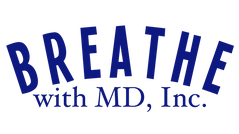Swallowing
A swallowing evaluation may be ordered for those living with a form of Neuromuscular Disease (NMD) known to cause swallowing difficulty or when there are symptoms indicating risk for aspiration, such as frequent coughing, excessive throat clearing, choking, difficulty swallowing, or a feeling of something stuck in the throat. In children, difficulty feeding, frequent respiratory infections, excessive saliva, drooling, and/or failure to thrive are indicators of swallowing dysfunction.
Video fluoroscopy, a test that can evaluate how your mouth and throat function when swallowing foods and liquids is often conducted. Alternatively, fiber-endoscopic evaluation, a test where a thin, flexible instrument is passed through the nose to view parts of your throat as you swallow, can be a helpful diagnostic test. A Speech Language Pathologist, (SLP) can provide therapy to improve the strength and/or coordination of the muscles used for eating and drinking. A SLP in collaboration with an Occupational Therapist (OT) may suggest strategies and tools for safer eating and drinking.
See also:
Pulmonary Function/Spirometry
Blood Gases
Sleep Study
A swallowing evaluation may be ordered for those living with a form of Neuromuscular Disease (NMD) known to cause swallowing difficulty or when there are symptoms indicating risk for aspiration, such as frequent coughing, excessive throat clearing, choking, difficulty swallowing, or a feeling of something stuck in the throat. In children, difficulty feeding, frequent respiratory infections, excessive saliva, drooling, and/or failure to thrive are indicators of swallowing dysfunction.
Video fluoroscopy, a test that can evaluate how your mouth and throat function when swallowing foods and liquids is often conducted. Alternatively, fiber-endoscopic evaluation, a test where a thin, flexible instrument is passed through the nose to view parts of your throat as you swallow, can be a helpful diagnostic test. A Speech Language Pathologist, (SLP) can provide therapy to improve the strength and/or coordination of the muscles used for eating and drinking. A SLP in collaboration with an Occupational Therapist (OT) may suggest strategies and tools for safer eating and drinking.
See also:
Pulmonary Function/Spirometry
Blood Gases
Sleep Study
